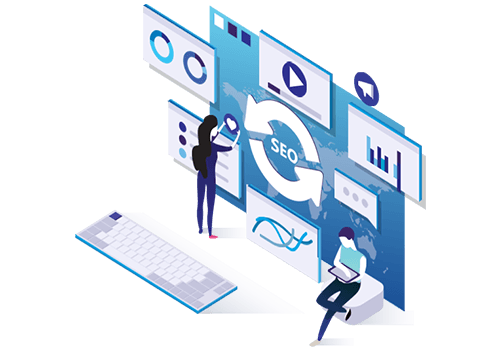Search Engine Optimization (SEO)

"Are you looking for unparalleled expertise to enhance your online presence? Don't hesitate any longer! I am Sumayya , best SEO analyst in Chemmad, Malappuram, Kerala. With a proven track record of improving digital design, I bring a wealth of knowledge and the best methods for increasing website visibility."
Services Offered

SEO - Search Engine Optimization

What is SEO?
Search Engine Optimization (SEO) is a set of practices and techniques aimed at improving a website's visibility on search engines like Google, Bing, and Yahoo. The goal of SEO is to improve the ranking of a website (non-paid) for keywords or keywords in the website content. The higher a website ranks in search results, the more traffic it receives.
Key aspects of SEO are :
1. Keyword Optimization: Find and include keywords in website content, meta tags, and other content to optimize user search.
2. On-page SEO: Optimize individual pages by optimizing content, meta tags, titles and other HTML elements.
3. Off-page SEO: Build external metrics such as backlinks (links from other websites), social media profiles, and online reputation to increase website authority.
4. Technical SEO: Study technical aspects such as page speed, mobile usability, crawling and indexing to improve your website.
5. Content Marketing: Creating high-quality, relevant, and relevant content to attract and retain visitors and improve search engine rankings.
6. User Experience (UX): Ensuring that the website provides a good and easy-to-use experience, which contributes to website and user satisfaction.
7. Local SEO: Local search optimization, especially for businesses in a specific area.
SEO is an ongoing process as search engines continuously evolve their algorithms. Staying informed about industry changes and adapting strategies accordingly is crucial for maintaining and improving search engine rankings.
Why Use SEO?
Increase Visibility: SEO helps increase your website's visibility on search engines, improve rankings and attract visitors.
Organic Traffic: Search engine optimization leads to organic traffic, which is more sustainable and has lower advertising costs.
Credibility and Trust: Websites that appear at the top of results are viewed by users as trustworthy and reliable.
User Experience: SEO includes good user optimization, resulting in faster load times, mobile responsiveness, and user navigation.
Competitive Advantage: Having large competitors in search results can make your business more successful, especially in a crowded market.
Cost-Effectiveness: Long-term marketing in SEO can be a cost-effective way to drive similar traffic compared to paid advertising.
Marketing Strategy: SEO allows you to target specific keywords and demographics, and ensure your brand content reaches your target audience.
Adaptability: SEO strategies can change based on analysis and industry changes, and can be continuously improved.
Global Reach: For online businesses, SEO can increase your global reach and reach audiences beyond your market.
Measurable Results: Tools like Google Analytics provide information about your website's performance, allowing you to measure the effectiveness of your SEO efforts.
Better Conversion Rates: Targeted traffic from SEO can lead to lower conversion rates as users search for more information about your product or service.
Long-term Success: Building a strong SEO foundation will help ensure long-term online success and provide steady organic traffic.
In short, SEO is an important digital marketing strategy that not only improves your online presence, but also enhances user experience, builds loyalty, and contributes to your online success.